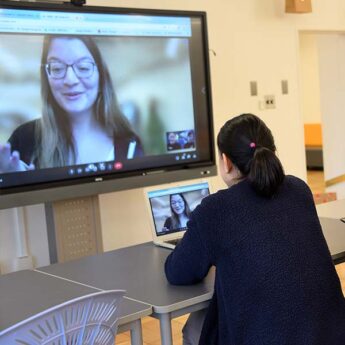But quality of BST education remains high
In The Hitchhiker’s Guide to the Galaxy, by Douglas Adams, the answer to the ultimate question of life, the universe and everything was 42. Alarmingly, it is also the answer to the question “How long have I been teaching?” The 1970s was when it all began: the start of a decade of strikes by postal workers, miners and dustmen, ending in the winter of discontent. Britain was a country of pre-decimal coinage, flared trousers and no such thing as email.
My first teaching post was at a grammar school for boys aged 11–18, who were academically strong and brilliant at rugby. Teaching biology, coaching rugby at school, and playing for the local team was all I wanted then. The need for greater responsibilities soon led to my arrival at a coeducational Catholic school in Hemel Hempstead. This was a growing experience for me, as I arrived as the head of Biology and left as the acting deputy head. A formation time for me also as I confronted the reality that promotion meant moving out of the classroom, my first love, as I became a manager.
My first headship, in 1989, was at the Kingsdown School in Wiltshire. This was a school of more than 1,300 students who were initially challenging, and in my view underachieving. I stayed there for 16 years, became an executive head of two schools, and will always see that time as my most fulfilling challenge in education.
What was noticeable in later years was that big brother, usually central government, was interfering more and more in education. Picture the scene: Andy and Billy get into a fight after school. It’s 1970; a crowd gathers, Andy wins. No one is really hurt, Andy and Billy shake hands and end up best mates.
Advance to the year 2000: Andy and Billy get into a fight; the police are called; an armed response unit arrives; Andy and Billy are arrested and mobiles with videos of the fight are confiscated as evidence. The pair is charged with assault; court-ordered anti-social behaviour orders (ASBOs) are issued, and both are suspended, even though Andy started the fight. Diversionary conferences and meetings with parents are conducted. The videos are uploaded on YouTube.
As a head, I once had to tell a girl that her father had died. She understandably broke down in tears. As a dad myself, I gave her a hug and tried to comfort her. Nowadays, I would think twice about my response as I may be accused of sexual harassment, lose my job and even face time in prison.
I have always maintained that I have been lucky to do a job I love. Coming to the British School in Tokyo (BST) was a wonderful way to end this chapter in my life. The atmosphere in school is warm and friendly. As a Head, it has been a thrill overseeing the development of the school and in particular the opening of the 6th Form. As a teacher, I still love my subject, Biology, and appreciate our BST tradition of being thanked by our students at the end of each lesson.
So, has education changed or not over the past 42 years? The old adage used to be that you could compare an operating theatre in a hospital in the 1960s with one in 2000, and they would be very different; do the same with a classroom in a school and it would look pretty much the same. This is not the case now. Teaching today involves much more high-tech interaction, which is, in my opinion, much more effective.
At BST we are proud of our learning culture, in which children are able to develop and make progress both academically and socially. In November we were inspected by a British government-validated inspection team. We received an outstanding report with marks of excellent in all eight areas. Our teaching was reported to be exceptionally strong. We are passionate about consistently high-quality teaching. We recruit teachers only after watching them teach in classrooms in their existing school, wherever that may be in the world. Consequently, our teachers are at the cutting edge of best educational practice and constantly seek ways to improve and refine learning experiences for the students.
We welcome students of all nationalities and academic abilities and provide a mutually supportive and tolerant community in which individuals are respected for who they are. We currently have students of more than 50 nationalities, and about one-third of our students are neither British nor Japanese.
It has been an honour and a privilege to lead BST over the past three years, and I can not think of a better way to end my career in schools. The next stage for my wife, Trysh, and I will be a fusion of consultancy, children, grandchildren, friends, sport, travel and relaxation. Sayonara!





